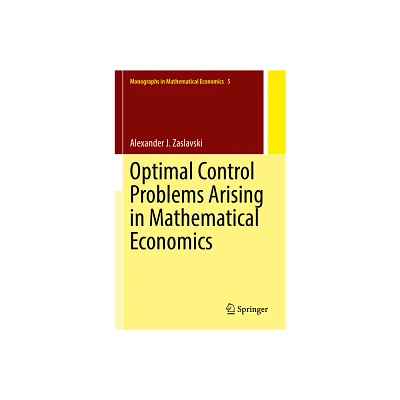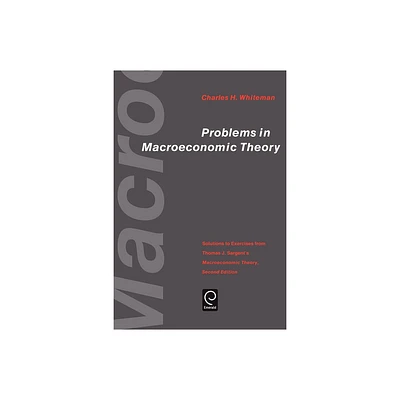Home
Mathematical Economics
Loading Inventory...
Barnes and Noble
Mathematical Economics
Current price: $24.95


Barnes and Noble
Mathematical Economics
Current price: $24.95
Loading Inventory...
Size: Paperback
*Product Information may vary - to confirm product availability, pricing, and additional information please contact Barnes and Noble
An excellent book which should find wide use. --
Mathematics Reviews
.
In this classic volume, a noted economist and teacher has combined a modern text for graduate courses in mathematical economics with a valuable reference book of analytical economics for professional economists.
Unique in its unified and careful presentation of a variety of techniques of economic analysis, the book is divided into two parts: chapters on mathematical economics (i.e. economic models analyzed primarily from the point of view of their mathematical properties) and appropriate mathematical reviews. To keep the exposition as smooth as possible, the economic analysis has been separated from the purely mathematical material -- permitting flexible use of the book as a text. Moreover, the chapters and reviews are designed as a self- contained system, wherein the reviews contain all the mathematics required for the chapters and the chapters illustrate the use of almost all the techniques set out in the reviews. An extensive mathematical background is not required; however, it is assumed the reader has some acquaintance with elementary calculus.
The economic analysis covers linear and nonlinear optimizing techniques, input-output, activity analysis, neoclassical and set- theoretic static economic models, modern general equilibrium theory, the Von Neumann and other models of balanced growth, efficient growth and turnpike theorems, and modern stability analysis.
The mathematical reviews include discussions of set theory, linear algebra, matrices, linear equations and inequalities, convex sets and functions, continuous functions and mappings (including neoclassical calculus methods), topological ideas, differential and difference equations, calculus of variations, and related topics.
Every attempt has been made to give a complete and rigorous exposition (except in topological methods where the approach is descriptive and heuristic) which omits no essential proofs or steps in the argument.
Mathematics Reviews
.
In this classic volume, a noted economist and teacher has combined a modern text for graduate courses in mathematical economics with a valuable reference book of analytical economics for professional economists.
Unique in its unified and careful presentation of a variety of techniques of economic analysis, the book is divided into two parts: chapters on mathematical economics (i.e. economic models analyzed primarily from the point of view of their mathematical properties) and appropriate mathematical reviews. To keep the exposition as smooth as possible, the economic analysis has been separated from the purely mathematical material -- permitting flexible use of the book as a text. Moreover, the chapters and reviews are designed as a self- contained system, wherein the reviews contain all the mathematics required for the chapters and the chapters illustrate the use of almost all the techniques set out in the reviews. An extensive mathematical background is not required; however, it is assumed the reader has some acquaintance with elementary calculus.
The economic analysis covers linear and nonlinear optimizing techniques, input-output, activity analysis, neoclassical and set- theoretic static economic models, modern general equilibrium theory, the Von Neumann and other models of balanced growth, efficient growth and turnpike theorems, and modern stability analysis.
The mathematical reviews include discussions of set theory, linear algebra, matrices, linear equations and inequalities, convex sets and functions, continuous functions and mappings (including neoclassical calculus methods), topological ideas, differential and difference equations, calculus of variations, and related topics.
Every attempt has been made to give a complete and rigorous exposition (except in topological methods where the approach is descriptive and heuristic) which omits no essential proofs or steps in the argument.


















